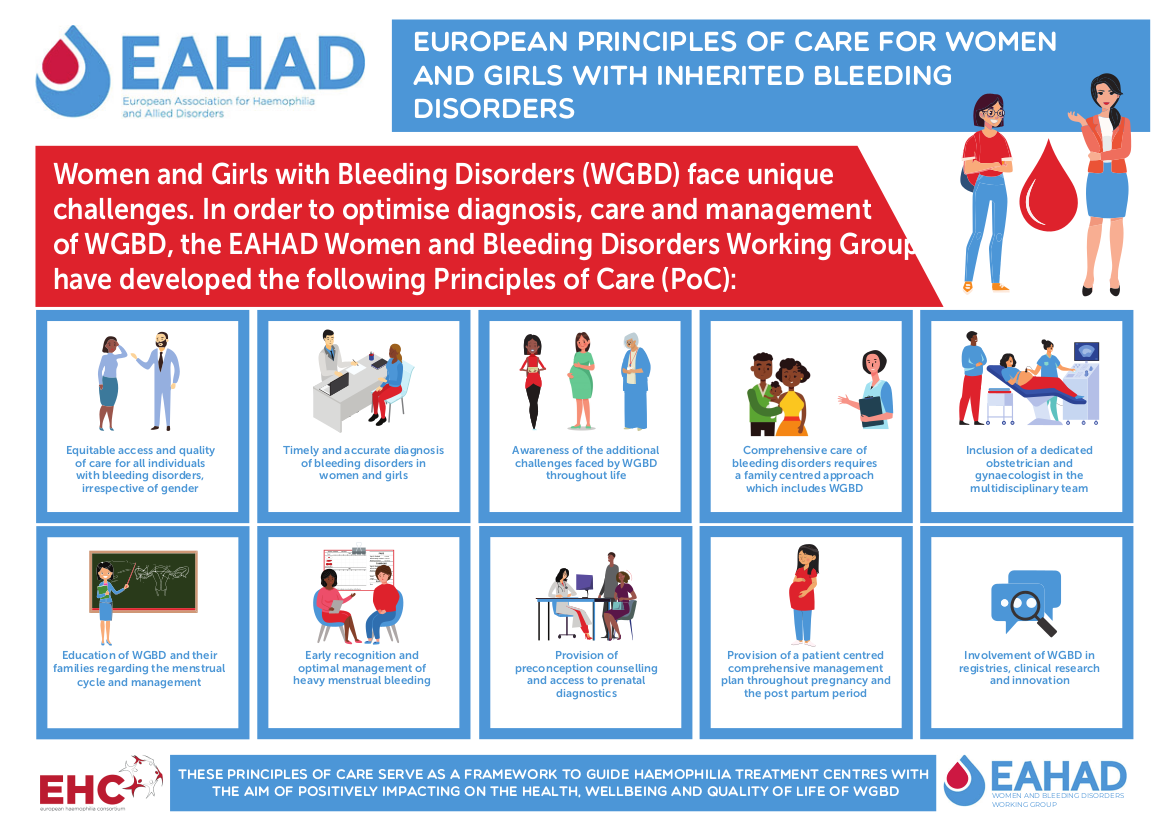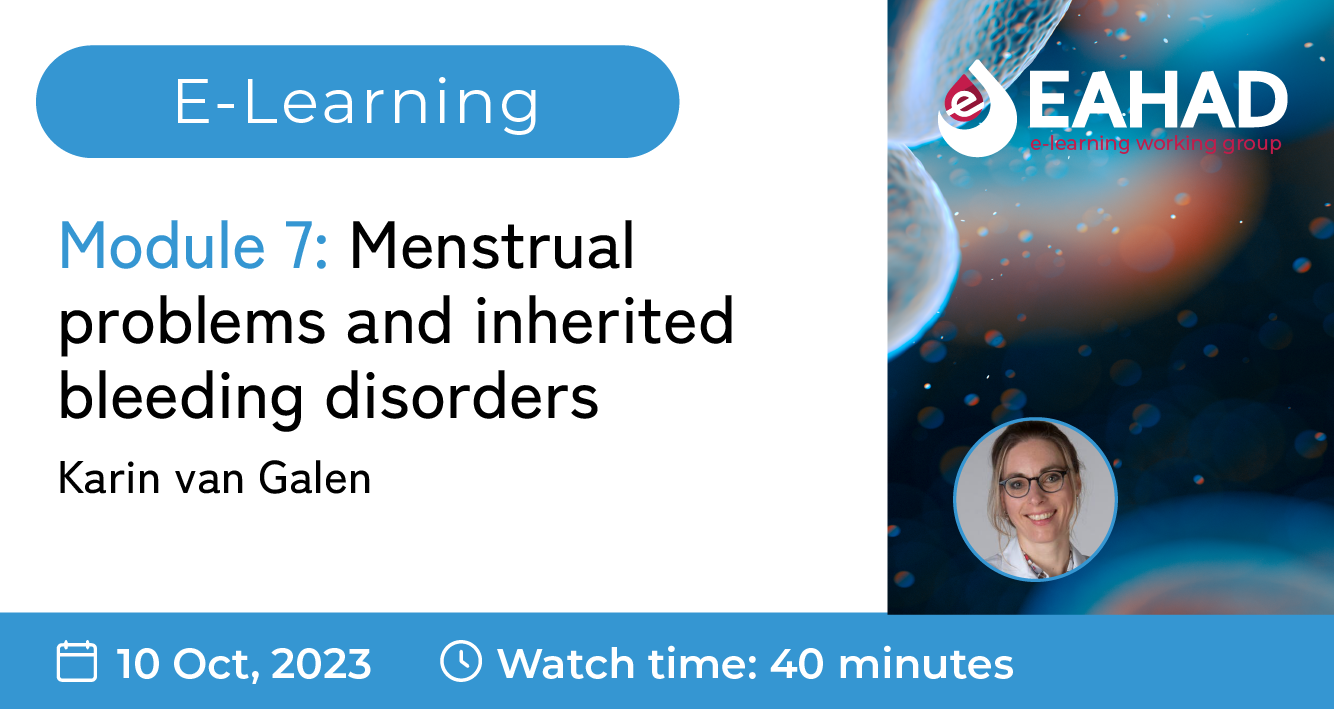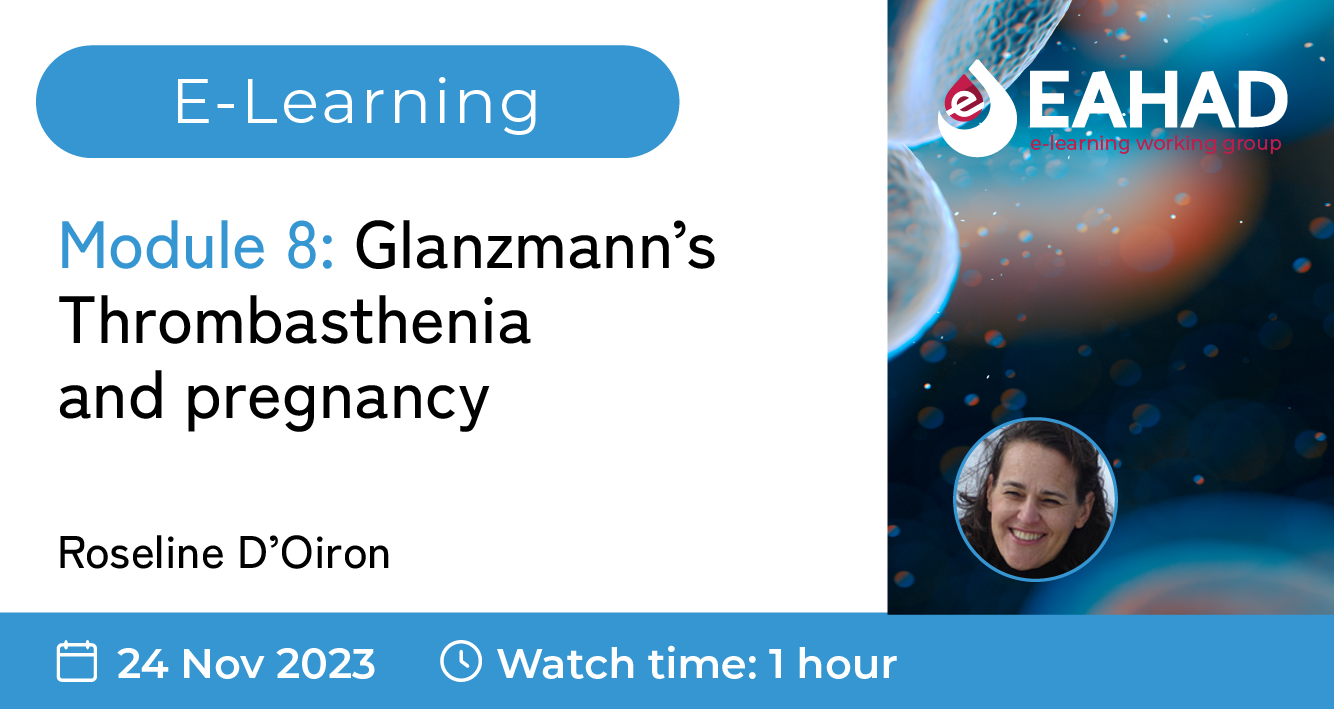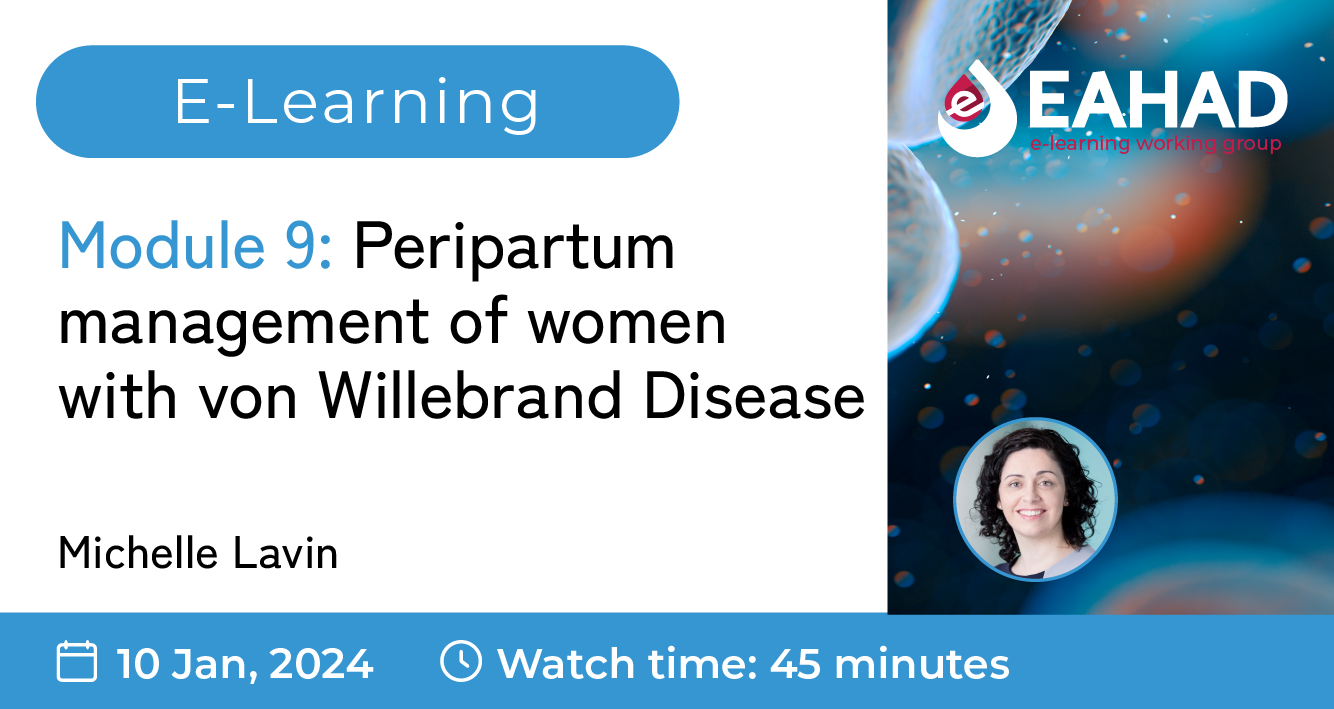Women and Girls+ with Bleeding Disorders Working Group
Formed in September 2018, it aims to gather, concentrate and disseminate knowledge among European healthcare providers on the diagnosis and treatment of women-specific bleeding symptoms in inherited bleeding disorders; define research priorities within the European medical society regarding women with inherited bleeding disorders; diminish misdiagnosis and under treatment of women with bleeding disorders in Europe.
Meet the Committee
Resources
- Are Women Welcome in Haemophilia Trials?
- European principles of care for women and girls with inherited bleeding disorders
- EAHAD Webinar: European Principles of Care for Women and Girls with Bleeding Disorders
- Period Talk Toolkit
- How I manage pregnancy in women with Glanzmann thrombasthenia
- Clinical management of woman with bleeding disorders: A survey among European haemophilia treatment centres
- Managing women‐specific bleeding in inherited bleeding disorders: A multidisciplinary approach
- Short patient video on DDAVP: Developing an educational resource on DDAVP for persons with bleeding disorders
Time to talk: Period
This booklet has been developed by the EAHAD Women and Girls+ with Bleeding Disorders (WG+BD) Working Group as an informational resource for girls who have just started or are about to start their periods. It offers insights that may feel new or familiar, both entirely normal. It also serves as a helpful resource for family members to understand these experiences better. While the booklet primarily addresses women and girls, it is inclusive of all individuals with the ability to menstruate, ensuring they are part of the conversation.
European principles of care for women and girls with inherited bleeding disorders
The European Principles of Care for Women and Girls with Bleeding Disorders are now available in five languages! One of the most important goals of our Women and Bleeding Disorders Working Group is to make sure that everyone has access to the knowledge and information shared with our community.
For the full POC publication, please click here.







